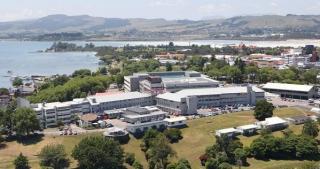- Home
- News
- Screening Matters, Issue 62, April 2019
- Latest news from bowel screening programme
News
- Screening Matters Newsletter
- April 2019
- April 2018
- December 2017
- August 2017
- April 2017
- December 2016
- October 2016
- March 2016
- November 2015
- August 2015
- June 2015
- April 2015
- February 2015
- December 2014
- October 2014
- August 2014
- June 2014
- April 2014
- February 2014
- December 2013
- October 2013
- August 2013
- June 2013
- April 2013
- February 2013
Screening Matters
The National Screening Unit newsletter
In this issue:
- Screening takes “centre stage” at Te Matatini Festival
- Update on cervical screening programme improvements
- Latest news from bowel screening programme
- Breast screening media campaign gets a re-screen!
- BreastScreen Auckland’s new centre puts consumer needs first
- NZ Obstetric Ultrasound Guidelines – Have your say
- NZ newborn hearing screening celebrates 15 years
Latest news from bowel screening programme

Lakes has one of the highest rates of bowel cancer in the country. Over the next two years around 17,000 eligible residents aged 60 to 74 will be invited to complete a screening test. To find out more, read: Ministry welcomes Lakes DHB to the National Bowel Screening Programme
The other big news on the bowel screening programme is that the development of the new IT system is underway.
Deloitte is partnering with the Ministry of Health to build the National Screening Solution (NSS) that will support bowel screening and potentially other screening programmes in the future.
The NSS has been designed to manage the participant’s journey through the screening process by ensuring the secure and effective flow of information between the parties involved. This requires it to exchange information with a number of systems both within the Ministry, such as the National Health Index (NHI) and third parties like LabPlus, who analyse the participant’s initial screening test.
One of the reasons the NSS is required to complete the roll out is because the interim IT solution currently being used, is unable to expand to support the national population of eligible screening participants.
To receive the Screening Matters newsletter by email, fill out our sign-up form.

